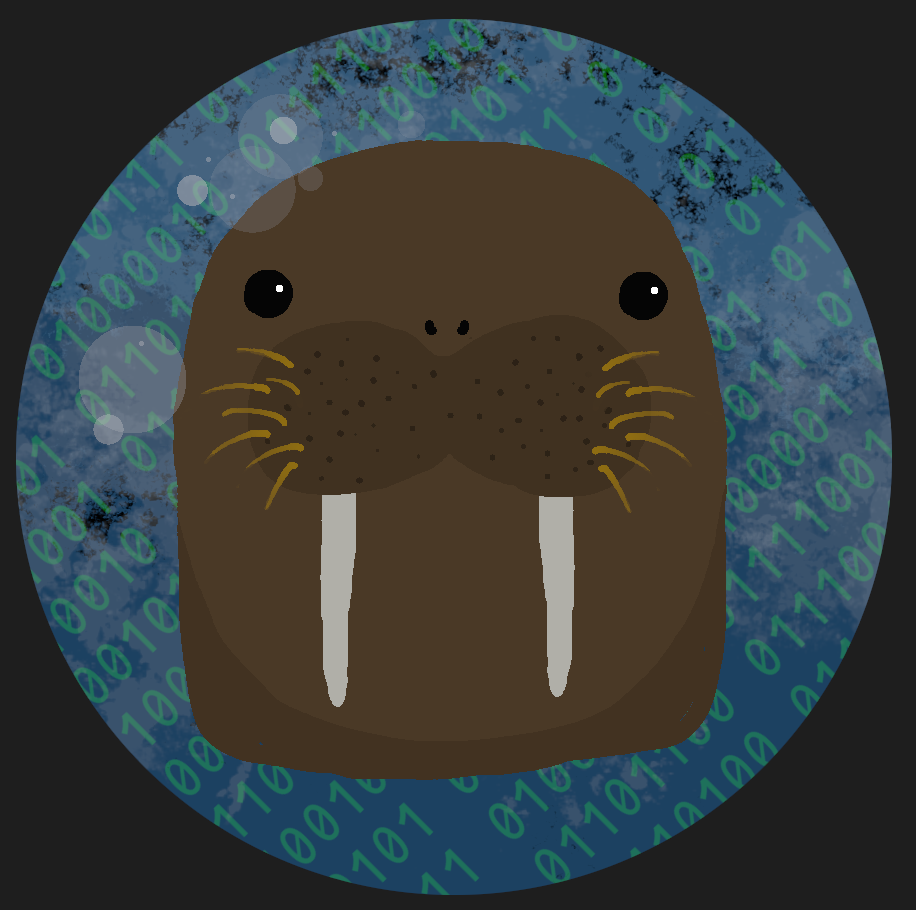Why Linux is portrayed as a Penguin?
The penguin’s name is “Tux” and he’s the official Linux mascot.
I think Linus Torvalds picked it a long time ago, he said he wanted something that was non-threatening, so hence the penguin lol.
The debate about Linux vs GNU/Linux imo, is one of the stupidest and pedantic debates I’ve ever heard. Maybe it mattered 30+ years ago when things were much less developed and only hardcore nerds and programmers used it, but now days it’s only important to grognards and neckbeards.
Hot take, but it’s like those pretentious music enthusiasts that will argue about what precise genre an artist fits into. “I would say they are post-progressive indie skitzo-pop. No way! They are clearly more neo-grunge sca-punk with post-rock elements” who cares?? Have your ultra-precise categories in your personal music collection all you want, but acting like it’s based on some hardcore objective truths of the universe is stupid.
Nobody is confused when I say I run Linux as my OS. Actually, people do get confused but it’s not because of GNU/Linux, it’s because they haven’t ever heard of Linux and thought that Windows and MacOS were the only 2 OSes for computers.
If somebody genuinely pulled an “um, actually” on me for saying Linux vs GNU/Linux, I would scream laugh loudly and then change the subject.
Yeah, but should you pronounce it Gee-en-yoo or Guh-no͞o? Huh? That REALLY tells me where your allegiances lay.
Ñu
Nü
Nee!
We demand a shrubbery!
Ño.
I pronounce it GNU
I honestly didn’t know people pronounced it any other way than gee-en-you. It’s in all caps, so I figured you said each letter.
Now that I think more about it though, I don’t know why I assumed that. I don’t say AWOL as ay-doubleyou-oh-el. I don’t say SNAFU as es-en-ay-ef-you.
I’m just going to call it the OS for yaks from now on and never think about it again.
This is how I am with “GUI”…I just call it Gee-you-eye. I finally went to a class on the subject for real and some people were calling it a “Gooey”…and I…no. Just fucking no. It’s not a “Gooey”.
I’ve spent nearly 20 years in academia and professional software development and have never heard anyone pronounce it Gee-you-eye, funnily enough.
Gonna try it this week and see how many people look at me like I’m crazy.
Edit: spelling
Yeah at this point I don’t care if I’m right or wrong. I’m going to pronounce it Gee-you-eye.
I think the distinction is kinda pointless anyways. As long as the information is conveyed I don’t really care about acronym/initialism pronounciation.
I had textbooks in college (25 years ago) that always had little blurbs about the acronyms and their pronunciation. GUI, we were instructed, was pronounced gooey. WYSIWYG is wiz-ee-wig, etc. It was on tests IIRC.
For whatever reason, I always drop the G and just call it the UI. This thread is making me think that I don’t actually say anything the right way.
You mean you don’t pronounce it “GNU’s Not Unix” to all of your compatriots?
Like much of my early language skills, I learned it from Sesame Street:
“Remember: No g-news is good g-news with Gary Gnu!” 😛
Holy smokes. 1000x this. You want Linux to be popular, stop gatekeeping it and being a hipster. OSX is a great example of how to make a Unix like OS popular with NORMAL people.
Grandma doesn’t care what kernel she’s running and … Hint hint, neither do I. I just want my computer to work and be easy to maintain.
I run Ubuntu, not because it’s the best, but became it just works. I might swap to Mint or PopOS, but that takes time out of my life which I’d rather spend coding or working out.
You want Linux to win on the desktop, you have to get manufacturers to make it the default, and good luck getting Dell or HP to change.
Heck most folks don’t even own a computer now a days.
Be happy Android won on mobile and Linux won on servers. ❤️
HP released the Dev One laptop running Linux once.
Niiiice
Um actually it’s called ska, not sca
I was about to draw out nukes over it.
I wonder how far back Richard Stallman set the free software movement by being absolutely cock slamming terrible at naming things. “I’m going to name my operating system after the sound my throat makes while swallowing a whole goldfish.”
If that bothers you, you should read the GNU FAQ page… About half of it consists of variations on “but why GNU/Linux”, including my personal favorite where they discuss why it’s not GNU Linux: https://www.gnu.org/gnu/gnu-linux-faq.html#whyslash and how you need to pronounce the slash: https://www.gnu.org/gnu/gnu-linux-faq.html#pronounce
deleted by creator
First gripe: Linux refers to the kernel only. Its not wrong to say, “I run Linux”, but that is very broad. For example, Android runs Linux too, but it is widely accepted that Android has deviated greatly from the Linux kernel base; something Google is slowly, some-what trying to resolve.
Second gripe: GNU/Linux was a phrase R. Stallman wanted to use after his GNU OS idea continued to see / experience delays while the GNU tools were individually adopting popularity with other OSs. In my opinion, it was / is his way of trying to make his political choices as a staunch FSF (Free (libre) Software Foundation) advocate matter. The bottom line is that when you say “GNU/Linux” you might be qualifying that the system runs GNU tools on top of a Linux kernel, but where does it end? Today, you could just as easily try to say that “GNOME/Wayland/Systemd/GNU/Linux” is not the same as “GNOME/XOrg/sysvinit/GNU/Linux” or “KDE/Wayland/upstart/GNU/Linux”, etc. It is a little more nuanced than that as the GNU tools do tend to define slightly more compatibility due to the nature of encompassing some of the lowest level user tools, but the example is valid and it highlights how the nature of open source software is sort-of troublesome to apply differentiating labels above the kernel
Third, Torvalds has gone on record many times stating that he doesn’t really see the appeal of the “GNU/Linux” scheme, but he does understand why some people think it is important.
Last, my personal opinion is I say, “I run Fedora”, and if someone asks what that is, “its a Linux based general Operating System alternative to Windows”
That makes sense
Here we go. …
Linux is the kernel.
Gnu refers to the userland tools.
Many say gnu no longer really applies as the userland tools are provided by more than GNU’s specific set.
I understand why Stallman wanted us to say GNU/Linux, because his organization needs money and wants its name out there, but that’s simply not how things get named in the real world.
First, GNU was always a mouthful. It’s always been intentionally pronounced differently from the animal. People prefer names that are not confusing and that don’t sound strange.
Second, we don’t do the same thing for other operating systems. If you’re an illustrator, you don’t say that you work on Adobe/Windows or whatever.
Third, GNU/Linux adds nothing interesting over simply “Linux”. And in fact, there have been distributions where they avoid GNU tooling due. Everybody still recognizes these as Linux.
For your second point, do you say that you use Adobe or Windows?
Or how about if I said I made this cool image using Linux? More likely I’d say I used GIMP or ImageMagick or some specific command line tool.
Linux is just the kernel. It’s an amazing kernel, but it’s only half the story. The tools on top of it are just as important as the kernel. That’s the point of saying GNU/Linux is to call out the other half of the whole experience.
The reason GNU/Linux isn’t popular to say is that it doesn’t provide any real information. “I run Linux” and “I run GNU/Linux” doesn’t really tell you anything. “I run Debian”, “I run Fedora”, “I run Arch BTW”, those all tell you something different.
I can’t speak to the OS landscape when Linux was released. Maybe saying that you ran GNU/Minix or Bell/Unix or whatever combinations might have existed would have made sense. However at this point it doesn’t.
For your second point, do you say that you use Adobe or Windows?
I mean, you already know the answer to that. The point is that you don’t have to give the entire context of your computing environment every time you mention some product you use.
Linux is just the kernel.
It’s not only the kernel. It is also the name that people have settled on for differentiating the computer running the Linux kernel from a computer running Windows.
I always pronounced it guh-new as in “Gary Gnu”.
How is it supposed to be pronounced?
I think you’re right. I think some people say G-N-U.
same one’s that say “ess queue elle” when they mean squirrel probably.
G-N-U, like spelling it out?
I think there a bunch of mispronunciations. OP seems to be referring to the “new” mispronounciation, while I was referring to the spelling out mispronunciation.
I was contrasting it with the animal “gnu”, otherwise known as the wildebeest, which is pronounced more similar to the word “new”. I suspect more people know the animal gnu than know the organization GNU.
Yea totally with you there.
Let me interject for a moment …
“I’d just like to interject for a moment. What you’re refering to as Linux, is in fact, GNU/Linux, or as I’ve recently taken to calling it, GNU plus Linux. Linux is not an operating system unto itself, but rather another free component of a fully functioning GNU system made useful by the GNU corelibs, shell utilities and vital system components comprising a full OS as defined by POSIX. Many computer users run a modified version of the GNU system every day, without realizing it. Through a peculiar turn of events, the version of GNU which is widely used today is often called Linux, and many of its users are not aware that it is basically the GNU system, developed by the GNU Project. There really is a Linux, and these people are using it, but it is just a part of the system they use. Linux is the kernel: the program in the system that allocates the machine’s resources to the other programs that you run. The kernel is an essential part of an operating system, but useless by itself; it can only function in the context of a complete operating system. Linux is normally used in combination with the GNU operating system: the whole system is basically GNU with Linux added, or GNU/Linux. All the so-called Linux distributions are really distributions of GNU/Linux!”
mmm…gnu/pasta. delicious
You mean GNU/Linux/pasta, gotta have that clarification in there.
deleted by creator
No, Richard, it’s ‘Linux’, not ‘GNU/Linux’. The most important contributions that the FSF made to Linux were the creation of the GPL and the GCC compiler. Those are fine and inspired products. GCC is a monumental achievement and has earned you, RMS, and the Free Software Foundation countless kudos and much appreciation. Following are some reasons for you to mull over, including some already answered in your FAQ. One guy, Linus Torvalds, used GCC to make his operating system (yes, Linux is an OS – more on this later). He named it ‘Linux’ with a little help from his friends. Why doesn’t he call it GNU/Linux? Because he wrote it, with more help from his friends, not you. You named your stuff, I named my stuff – including the software I wrote using GCC – and Linus named his stuff. The proper name is Linux because Linus Torvalds says so. Linus has spoken. Accept his authority. To do otherwise is to become a nag. You don’t want to be known as a nag, do you? (An operating system) != (a distribution). Linux is an operating system. By my definition, an operating system is that software which provides and limits access to hardware resources on a computer. That definition applies whereever you see Linux in use. However, Linux is usually distributed with a collection of utilities and applications to make it easily configurable as a desktop system, a server, a development box, or a graphics workstation, or whatever the user needs. In such a configuration, we have a Linux (based) distribution. Therein lies your strongest argument for the unwieldy title ‘GNU/Linux’ (when said bundled software is largely from the FSF). Go bug the distribution makers on that one. Take your beef to Red Hat, Mandrake, and Slackware. At least there you have an argument. Linux alone is an operating system that can be used in various applications without any GNU software whatsoever. Embedded applications come to mind as an obvious example. Next, even if we limit the GNU/Linux title to the GNU-based Linux distributions, we run into another obvious problem. XFree86 may well be more important to a particular Linux installation than the sum of all the GNU contributions. More properly, shouldn’t the distribution be called XFree86/Linux? Or, at a minimum, XFree86/GNU/Linux? Of course, it would be rather arbitrary to draw the line there when many other fine contributions go unlisted. Yes, I know you’ve heard this one before. Get used to it. You’ll keep hearing it until you can cleanly counter it. You seem to like the lines-of-code metric. There are many lines of GNU code in a typical Linux distribution. You seem to suggest that (more LOC) == (more important). However, I submit to you that raw LOC numbers do not directly correlate with importance. I would suggest that clock cycles spent on code is a better metric. For example, if my system spends 90% of its time executing XFree86 code, XFree86 is probably the single most important collection of code on my system. Even if I loaded ten times as many lines of useless bloatware on my system and I never excuted that bloatware, it certainly isn’t more important code than XFree86. Obviously, this metric isn’t perfect either, but LOC really, really sucks. Please refrain from using it ever again in supporting any argument. Last, I’d like to point out that we Linux and GNU users shouldn’t be fighting among ourselves over naming other people’s software. But what the heck, I’m in a bad mood now. I think I’m feeling sufficiently obnoxious to make the point that GCC is so very famous and, yes, so very useful only because Linux was developed. In a show of proper respect and gratitude, shouldn’t you and everyone refer to GCC as ‘the Linux compiler’? Or at least, ‘Linux GCC’? Seriously, where would your masterpiece be without Linux? Languishing with the HURD? If there is a moral buried in this rant, maybe it is this: Be grateful for your abilities and your incredible success and your considerable fame. Continue to use that success and fame for good, not evil. Also, be especially grateful for Linux’ huge contribution to that success. You, RMS, the Free Software Foundation, and GNU software have reached their current high profiles largely on the back of Linux. You have changed the world. Now, go forth and don’t be a nag. permalinkembedsavereportgive goldreply
I like when it says “permalinkembedsavereportgive goldreply”, so deep!
Love it lol
KDE/Linux
AwesomeWM/Linux
https://i.imgur.com/vwQ1VFC.png
FFS lol, why don’t we skip the pedantry and just call it Gary already
deleted by creator
It’s not unusual to see people talking about android users being Linux users “because android is Linux too” clearly not understanding the difference between Linux the OS, i.e. GNU/Linux, and Linux the kernel. So it’s useful when you have to make such a distinction.
Exactly. When I say I want a Linux phone all I get are Android options. What I want is a GNU/Linux phone that I can run full Linux distros on.
Alpine or PostmarketOS works for older stuff. Some others will run Ubuntu as well.
Instead of “Linux on [phone]” try using Debian/Ubuntu or one of the mobile-targeting distros as a keyword
Alpine
Alpine is also arguably not “GNU/Linux”, as it doesn’t use GNU Core Utils or glibc. But I don’t know anyone who would suggest that Alpine isn’t “proper Linux”.
I’m about to step in it…
There is no GNU/Linux OS; the FSF has never defined a base that demonstrates the GNU/Linux OS. All the FSF has done is loosely define guidelines that basically allows them to endorse any 100% free (libre), self-hosted, distribution that supports a 100% copy left license and does not promote in any way or auto install non-free or non-open software by default.
Unfortunately for them this means that 99.99% of the Linux distributions out there do not qualify as GNU/Linux, even the ones like Debian, Red Hat, or Ubuntu that did adopt the GNU/Linux name scheme, because they all host, promote, or allow users access to non-free software in some way.
Furthermore, here’s the real kicker, if someone decides to take one of the endorsed GNU/Linux distributions and modify it to run FISH instead of BASH, you would now have a GNU/Linux distribution that was incompatible with other GNU/Linux distributions but still identifiable as GNU/Linux.
This is why FSF and their “GNU/Linux” scheme is just a stupid R. Stallman political stunt to make his life’s pursuit relevant; the movement tries to benefit from everyone else’s work without actually accomplishing the one thing they need to do which is to actually define what packages, versions, implementations are GNU/Linux.
Ultimately what I am saying is that defining the guidelines is only half the solution; the other half is the FSF needs to define and maintain their own LSB (Linux Standard Base)
deleted by creator
Unfortunately for them this means that 99.99% of the Linux distributions out there do not qualify as >GNU/Linux, even the ones like Debian, Red Hat, or Ubuntu that did adopt the GNU/Linux name >scheme, because they all host, promote, or allow users access to non-free software in some way.
You are totally confused. In words of R. Stallman:
“The kernel is an essential part of an operating system, but useless by itself; it can only function in the context of a complete operating system. Linux is normally used in combination with the GNU operating system: the whole system is basically GNU with Linux added, or GNU/Linux. All the so-called “Linux” distributions are really distributions of GNU/Linux”.
“Today there are many different variants of the GNU/Linux system (often called “distros”). Most of them include nonfree programs”.
You clearly didn’t understand what I said…
I recently found myself forced to give a shit, when one of our projects started doing weird shit after switching to an Alpine-based docker image.
Can you elaborate? I’m aware alpine uses non-GNU stuff like musl & busybox. But overall, they’re not too far off.
It was a dependency resolution issue. Npm couldn’t install one of the packages without some package.json gymnastics, and those same gymnastics somehow fucked with our debian based images that we use for development. I can’t say much more because I honestly don’t know what exactly happened. I just diagnosed the issue and forwarded it to our resident node guru, who took it from there.
Why Linux is portrayed as a Penguin?
In the uses section, it mentions Tux being shown at the top of the boot sequence for Gentoo.
It’s kinda funny because I’ve been using Gentoo for almost 4 years and never knew that there was one Tux per CPU core until I read this article. That’s fun!
Just thought it put out the same number on every system I guess, haha!
I thought it had to do with screen width
BTW/Arch
❤️
Are those your pronouns?
they are now!
I really don’t care what ppl call it, I call it “Linux”, because saying “GNU/Linux” is really annoying. Also, I like Alpine so yeah I can say that I use “Linux”.
What’s better is GNU. IDGAF if the kernel is Linux or HURD as long as my hardware works, but I do care about preferring copyleft-licensed stuff to permissively-licensed stuff.
Can I ask why you prefer copyleft? I’m a big fan of permissive stuff.
Copyleft ensures that fixes, improvements, etc make it back into the main project. Permissive stuff allows capitalist behemoths to take your shit and run. The latter is personal preference. Some people care that their work is being passed onto others.
Adding to your reasons, I think copyleft is great because it prevents the code from being incorporated into proprietary anything. If you shitstains want to use my code while stripping the freedoms I intended it to have, fuck you!
Both. Richard and Linux paved the way for what all FOSS and the world currently is
https://en.m.wikipedia.org/wiki/Tux_(mascot)
TIL, Linus Torvalds just likes penguins.
Yeah, he’s just based like that
Just go with whatever software distribution you use.
Systemd/Linux
Ain’t that the sad truth. 😂
Linux/GNU. GNU would never have been widely adopted anywhere without the Linux kernel. Plus, Linux can be made to run with alternatives to GNU. Putting GNU first is putting the cart before the horse.
Actually it might be the opposite, without the GNU initiative, Linus may not have found any interest in developing the Linux kernel. Without the GPL license, the efforts of the GNU community would not have been spent on Linux.
If the horse walks backwards it still works, right?
For most people Linux is useless without GNU. A kernel alone doesn’t make an OS.
Gun/Linux 🔫
GNU/Linux is the more technically accurate term, but in practice, most people say “Linux” so that others know what they’re talking about.
And the reason for Tux is because Linus Torvalds was once bitten by a penguin.
It’s not more accurate with distros like gokrazy, alpine, or chimera which aren’t necessarily based on GNU software (the last of which specifically advertises itself as „non-gnu Linux”)
Most people don’t use them. And nobody is calling them GNU/


























